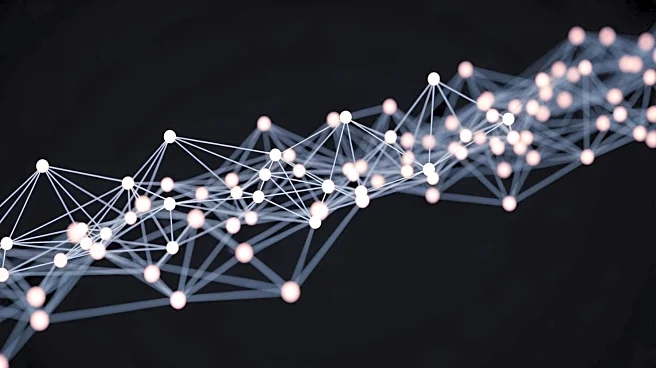What's Happening?
Researchers from Johns Hopkins University, Harvard, and the City College of New York have developed a prototype mesh networking system called Amigo, designed to function in environments where the Internet
is shut off, such as during political protests. Mesh networks, known for their decentralized, fishnet-like connections, have historically struggled in large crowd settings, often failing to deliver messages or exposing users to tracing. Amigo aims to address these issues by forming dynamic 'cliques' where designated leader nodes manage communication, reducing message traffic and preventing network overload. The system also enhances cryptography and anonymity, allowing for secure group removal and protecting metadata from exposure.
Why It's Important?
The development of Amigo is significant as it provides a robust communication tool for political protests, where internet shutdowns are commonly used to suppress organization and mobilization. By improving mesh network reliability and security, Amigo empowers protestors to maintain communication and coordination, potentially influencing the dynamics of civil unrest. This technology could also be beneficial in natural disaster scenarios, where traditional communication networks may be compromised, aiding first responders and affected citizens in coordinating relief efforts. The advancement in mesh networking could lead to broader applications in various challenging environments.
What's Next?
The researchers plan to continue refining Amigo by incorporating more realistic models of crowd behavior, drawing from studies of psychological crowds and real-world protest dynamics. This interdisciplinary approach, combining mathematics, sociology, and group psychology, aims to further enhance the system's effectiveness in real-world scenarios. As Amigo evolves, it may see adoption beyond political protests, potentially becoming a critical tool in disaster response and other situations where traditional communication networks are unavailable.
Beyond the Headlines
Amigo's development highlights the ethical and legal dimensions of communication technology in political protests. By enabling secure and anonymous communication, it challenges government efforts to control information flow during civil unrest. This raises questions about the balance between national security and individual rights to free expression and assembly. Additionally, the technology's potential use in disaster scenarios underscores the importance of resilient communication systems in safeguarding public safety and coordinating emergency responses.











